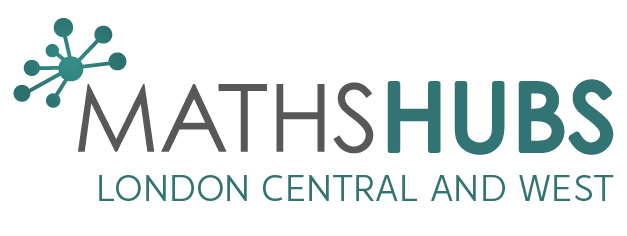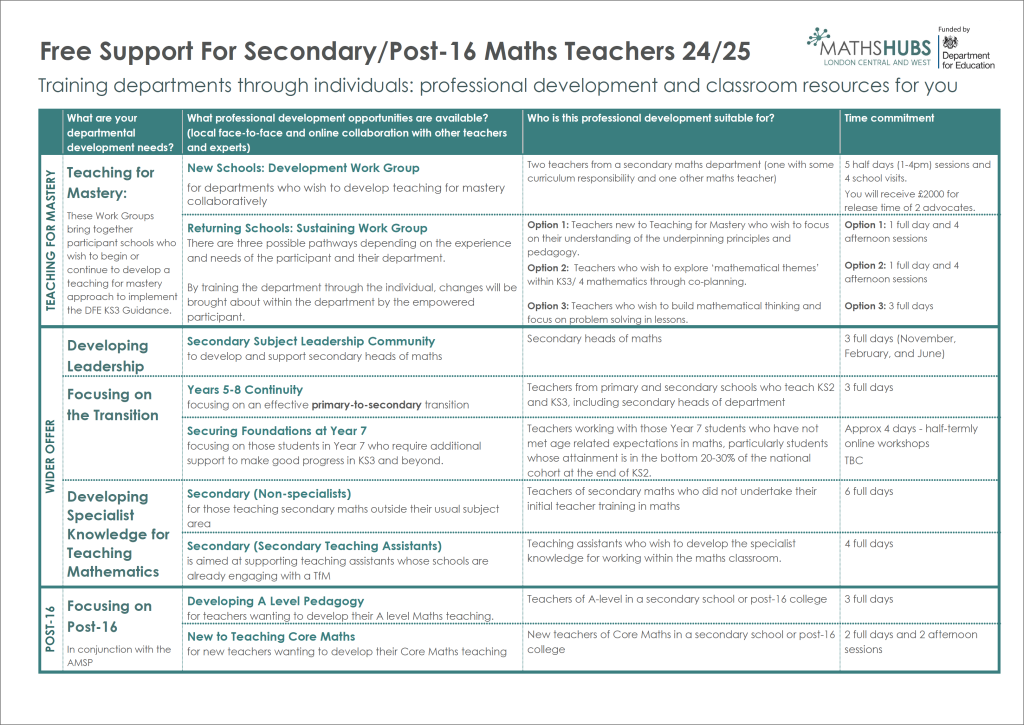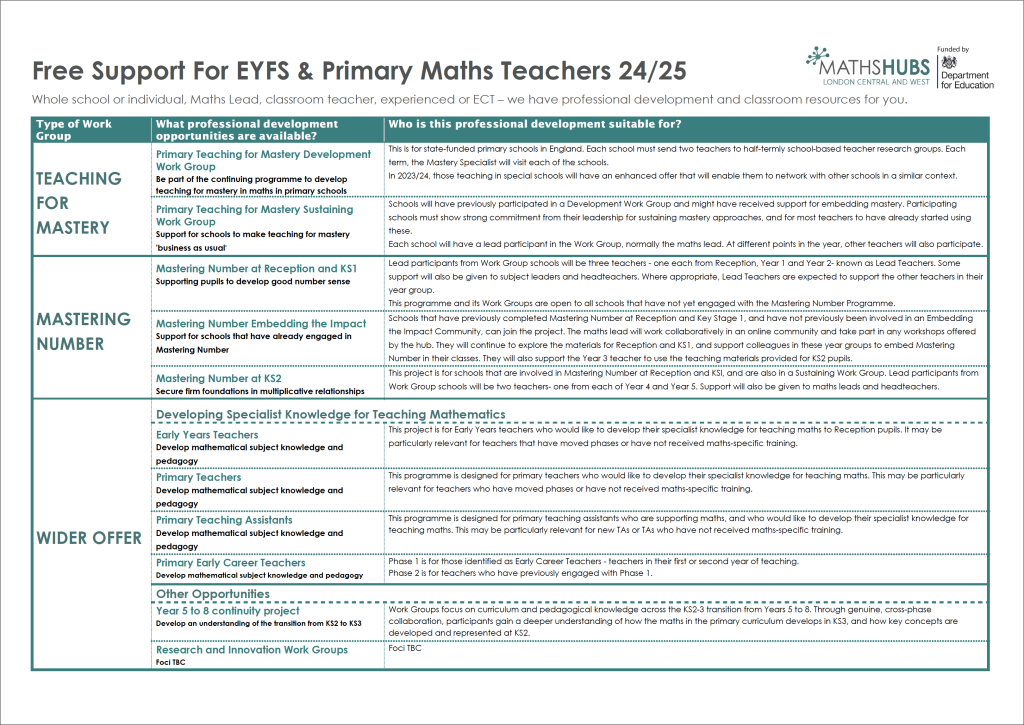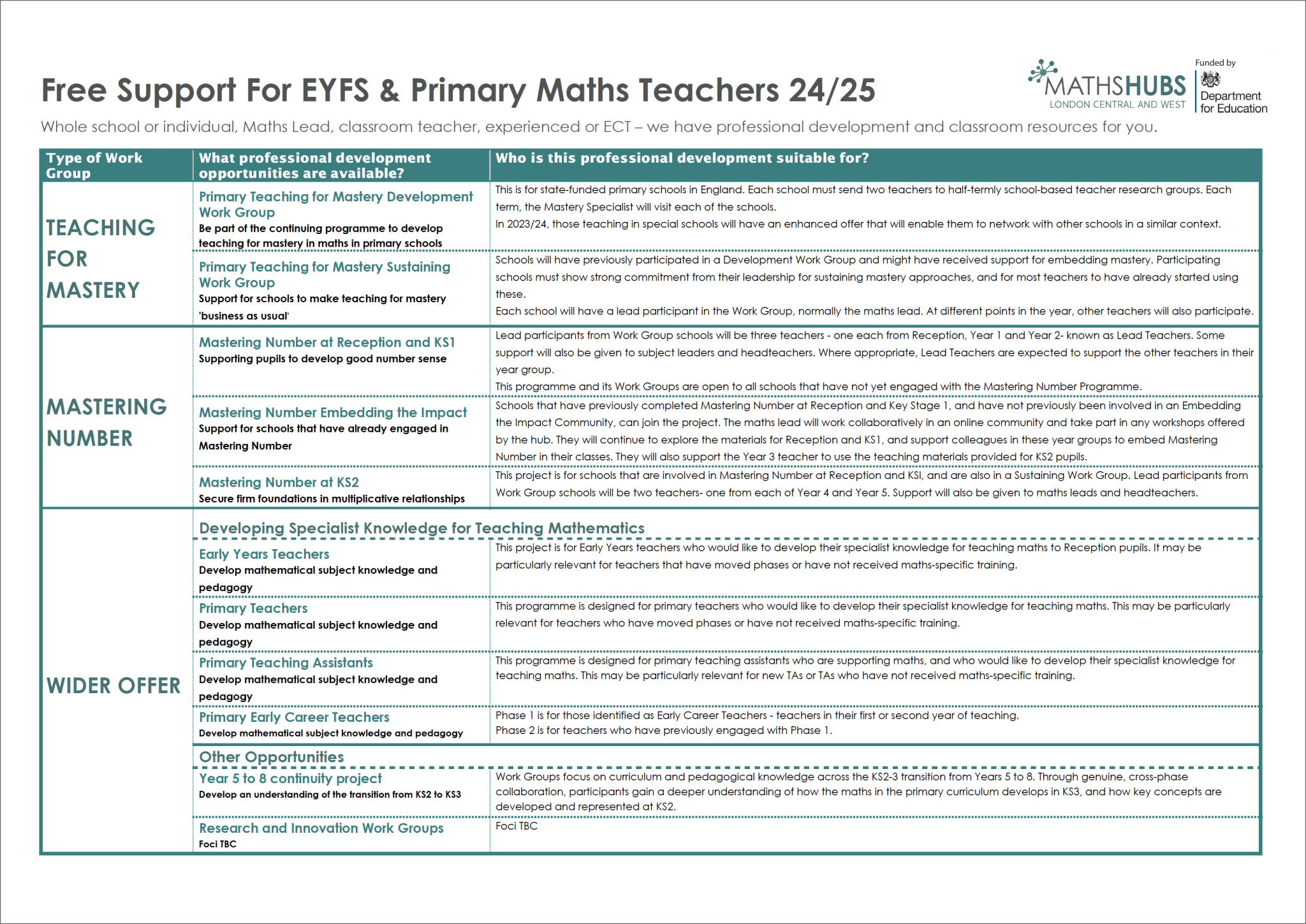This Innovation Work Group will be led by Jean Knapp (Dodwell), J. Knapp – Primary Mathematics Consultant & Specialist Teacher
Mental fluency supports number facts, tables facts and making connections. In a Number Talk, these areas form the basis for discussion and underpinning this, variation, mathematical discussion and representation (the Big Ideas of Mastery Mathematics).
The importance of mental fluency supports easily recalled number facts from long term memory to support quick recall and longer, written algorithms. Without this both speed, written calculations are impaired and often, with this, number confidence.
Number Talks were created by Kathy Richardson and Ruth Parker in the early 1990s * to engage students in meaningful mathematical discourse and sense-making as well as transform the culture of the classroom to one of inquiry and curiosity.
What is a Number Talk?
Number Talks are an approach to developing facility with computation that engages children in thinking about numbers and allows them to add, subtract, multiply and divide using the mathematics that is meaningful to them.
The typical steps for a number talk are:
- Teacher presents an expression or problem for pupils to solve mentally.
- Allow adequate “wait time” for most students to come up with an answer. pupils can signal with a thumbs up when they have solved the expression.
- Initially, invite pupils to share their answers only, not their solutions.
- Then ask for pupil volunteers to share how they solved the problem.
- For each pupil who shares their solution strategy, chart their thinking on the board. Make sure to accurately record their thinking; do not shape or correct their response.
- Have several pupils who used different strategies share their thinking with the class.
- Invite pupils to question each other about their strategies, compare and contrast the strategies, and ask for clarification about strategies that are confusing.
However, Jean would like to test the model further to support retrieval (reviewing past explored strategies) and application at speed in a time limited situation.
What does the project involve?
The project will involve a half-day day of training on Zoom (including planning for the first lesson study), followed by six half-days;
- x4 half day lesson studies (a.m. – initially through zoom and monitoring the COVID situation for F2F meetings if the situation changes)
- x1 half day follow up sharing, refining and dissemination approaches to the wider school and TAs as a SL (p.m.)
- x1 half day workgroup Presentation to Schools (a.m.)
Sessions will take place across the Autumn 2020, Spring 2021 and Summer 2021. Between sessions there will be gap tasks involving trialling the use of the approaches explored in the training, discussions and lesson studies. The workgroup lead will offer support in designing the sequences, demonstrating teaching and orchestrating the lesson study discussions. Participating teachers are expected to work collaboratively, teach a whole class or small group in their own schools, reflect critically on pupils’ learning and their own professional learning.
In the event schools can resume visits, some participants will be expected to host a learning study in their school for the workgroup. This requires allocating a space for the workgroup to gather and for the group teaching sessions to take place.
Refreshments will be provided (for any non-Zoom sessions that may take place) tea/coffee refreshments provided by the host school/s will be reimbursed).
The project’s aims involve four key areas:
- Professional Learning – Participating teachers understand the content, purpose and potential of a number talk, be aware of their role and the role of their pupils and consider its benefits with mental fluency.
- Practice Development – Participating teachers will become increasingly skilled at having a toolbox of strategies and lesson ideas to explore number talks, including scaffolds to support the teacher role and the role of pupils when building a successful number talk.
- Materials development – Exemplar materials will be developed and shared across the Hub in the form of case studies and some practical materials. A PADLET will be created that participants could share with their schools and across the hub (sorted into Key Stages and Topics).
- Whole school/departmental policies and approaches – Exemplar materials and guidance will be developed and shared across the Hub. In particular, these will be shared with subject leaders to inform their whole school development of establishing good practice in optimal learning environments for a number talk, teacher questioning, strategies and a considered application to a tested curriculum.
Schools can choose to send up two members of staff – Ideally, there would be the Mathematics Subject Leader/Team representative and another teacher from KS1 and KS2.
Dates:
- Friday 20th November 2020 – Project Launch & Preparation (1/2 Day)
9:15a.m.-12:15p.m.
Via Zoom
- Monday 7th December 2020 – Lesson Study* 1 – 9:30 – 11:45a.m.
Gap Task
- Tuesday 9th February 2021 Lesson Study* 2 – 9:30 – 11:45a.m.
Gap Task
- Monday 8th March 2021 Lesson Study* 3 – 9:30 – 11:45a.m.
Gap Task
- Monday 22nd March 2021 Lesson Study* 4 – 9:30 – 11:45a.m.
All of these will take place via Zoom. We will monitor the situation and resume school visits when safe to do so.
- Monday 24th May 2021 – Sharing and Dissemination Meeting & Developing the SL Role – How do we disseminate the ideas to the wider school (inc. TAs and Parents)? – 1:30-3:30p.m.
Zoom (at this stage)
Gap Task
- Monday 7th June 2021 – Presentation Day – 9:30-11:45a.m Zoom (at this stage)
In order to apply to be a part of this project, you will need to fill out an Expression of Interest Form. To see the full flyer, see here.
The deadline to fill this out is Monday 9th November 2020
Contact j.knappmathscourses@outlook.com or michelle.foster@lcwmathshub.co.uk
*The London Central and West Maths Hub reserves the right to charge a £75 fee for non-attendance to the sessions or for cancellations to any of the sessions with less than 1 week’s notice.
Useful Reading:
* Parrish, Sherry (2010) Number Talks: Helping Children Build Mental Math and Computation Strategies. Math Solutions.
* Humphreys, Cathy and Parker, Ruth. 2015. Making Number Talks Matter: Developing Mathematical Practices and Deepening Understanding, Grades 4-10. Stenhouse Publishers.



